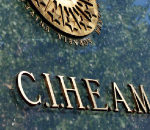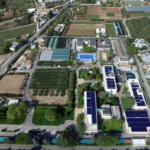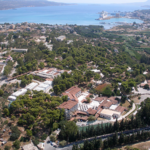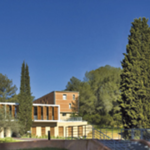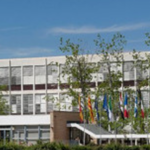MIGRATION AND INCLUSIVE RURAL
DEVELOPMENT IN THE MEDITERRANEAN

Today, migratory phenomena are an essential part of political agendas. Little known, their effects on territories of origin and destination have an impact on the socio-economic balance in an already preoccupying climate context.
As a major component of population movements, migration from countryside to cities is a strategy to improve household living conditions thanks to migrants’ tangible and intangible transfers and is a lever for local development. However, it also undermines the attractiveness of rural territories, especially for younger people. Besides, it deprives them of the human resources required for the agricultural and agro-food sectors.
At a time when food crises are resurging and natural resource tensions in the Afro-Mediterranean region are worsening, migration may also weaken food and water security of the poorest regions.
What have been, and what are, the migratory trends in the Mediterranean? How can internal and international mobility be integrated as a territorial development factor? How can youth and female migration be addressed? What are the links between migration and the environment? What roles do innovation and the private sector play? What answers can be provided by actors of cooperation and development?
Co-directed by the International Centre for Advanced Mediterranean Agronomic Studies (CIHEAM) and the Agence française de développement (AFD), the new edition of the Mediterra report gives the floor to experts and partner institutions to better understand this complex theme, and identify sustainable solutions.
English version
Table of contents
Preface
Chap 1/ Migration to and from Mediterranean Countries
Chap 2/ Overview of Internal Migration in the Mediterranean
Focus 1 The Grdr "migration-citizenship-development"
Chap 3/ West African Migration to Mediterranean Countries and Agricultural Work
Chap 4/ Migration Agriculture and Rural Territories in the Mediterranean
Focus 2 The "Agricultural and Livestock Support for Syrian People" Programme led by the CIHEAM-Bari
Chap 5/ Rural Development and Migration: An Environmental Dimension
Chap 6/ Fishing and Fishing Communities
Chap 7/ Youth Migration from Rural Areas in the Mediterranean
Focus 3 How Social Entrepreneurs Transform the Journey of Migrants
Chap 8/ Rural Under-Development and Internal Migration
Chap 9/ Gender and Climate-Induced Migration in the Mediterranean
Focus 4 Unaccompanied Minors, Different Realities and Support Methods
Chap 10/ Innovation at the Service of the Prevention of and Adaptation to Migration
Focus 5 The Role of ICT in Regufee Empowerment
Chap 11/ The Euro-Mediterranean Process and the Root Causes of Migration
Chap 12/ Migration, Asylum: The Role of Development Agencies
Chap 13/ Mobilisation of Syrian Investors and the Private Sector
Focus 6 Refugee Assistance Through Financial Inclusion
Forum on Agriculture, Rural Development and Migration in the Mediterranean (29 May 2018)


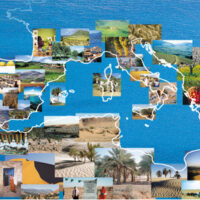 CIHEAM MontpellierOur vision is that of a Mediterranean basin characterised by a spirit of cooperation.
CIHEAM MontpellierOur vision is that of a Mediterranean basin characterised by a spirit of cooperation.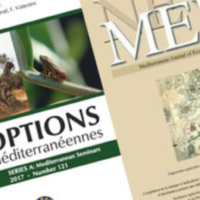 CIHEAM publicationsOur publications and communication tools aim to facilitate decision-making processes for political, economic and agricultural actors in the Mediterranean region
CIHEAM publicationsOur publications and communication tools aim to facilitate decision-making processes for political, economic and agricultural actors in the Mediterranean region News and events
News and events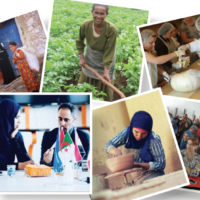 Press review (Scoop.it)
Press review (Scoop.it) Master programmesThe CIHEAM Montpellier stands for both personalised accompaniment and international openness.
Master programmesThe CIHEAM Montpellier stands for both personalised accompaniment and international openness.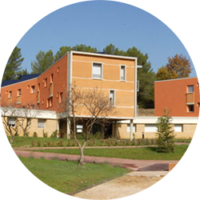 Campus & student lifeSince 1962, almost 95% of our foreign students have been granted accommodation on site.
Campus & student lifeSince 1962, almost 95% of our foreign students have been granted accommodation on site.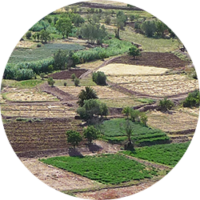 Doctoral platformShaping the scientists of tomorrow through research training… A natural commitment of the CIHEAM Montpellier
Doctoral platformShaping the scientists of tomorrow through research training… A natural commitment of the CIHEAM Montpellier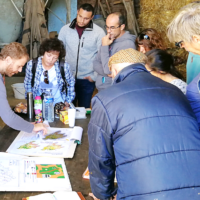 ProjectsOur research and cooperation projects are tools for inclusive development, they take into account the populations and rural and coastal territories of the Mediterranean.
ProjectsOur research and cooperation projects are tools for inclusive development, they take into account the populations and rural and coastal territories of the Mediterranean. Mediterranean online catalogueA unique Documentation Center on the Mediterranean,
invested in sharing knowledge.
Mediterranean online catalogueA unique Documentation Center on the Mediterranean,
invested in sharing knowledge. Scientific productionThe scientific production of the CIHEAM Montpellier is the fruit of collaborations by our lecturer-researchers, associated experts, students and research partners.
Scientific productionThe scientific production of the CIHEAM Montpellier is the fruit of collaborations by our lecturer-researchers, associated experts, students and research partners. Becoming partnersCreating partnerships is part of the genetic make-up of the CIHEAM Montpellier... Join one of its projects or study programmes, support its actions.
Becoming partnersCreating partnerships is part of the genetic make-up of the CIHEAM Montpellier... Join one of its projects or study programmes, support its actions.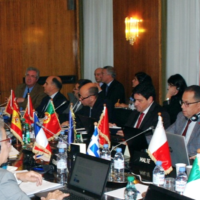 Ministerial meetingsThrough the Ministerial, CIHEAM contributes to the construction of a dialogue between the Mediterranean countries around questions relating to agriculture and the rural world.
Ministerial meetingsThrough the Ministerial, CIHEAM contributes to the construction of a dialogue between the Mediterranean countries around questions relating to agriculture and the rural world.